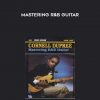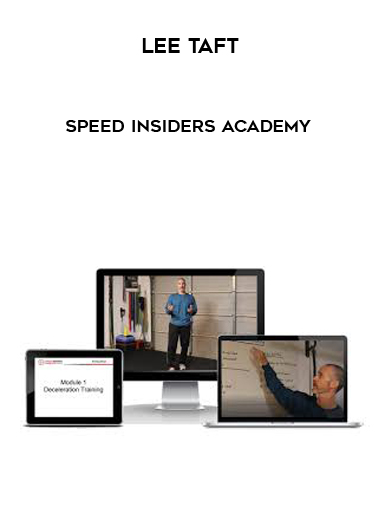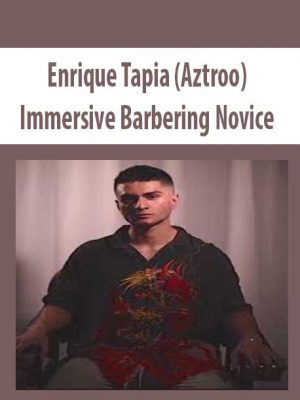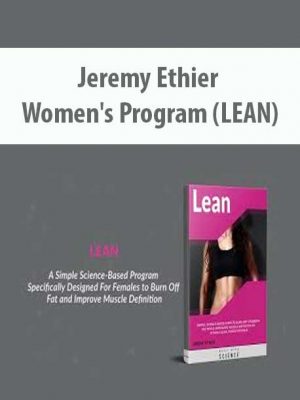Lee Taft – Speed Insiders Academy
$349.00 Original price was: $349.00.$64.00Current price is: $64.00.
Proof of item:

Speed Insiders Academy is a course designed for Graduate Assistants and Interns in the fields of exercises science, strength and conditioning, physical therapy, physical education, kinesiology, and person training.
The goal of the SI Academy Course is to give GA’s and Interns an in-depth knowledge of multi-directional speed training, energy system training for speed, coaching skills and large team management, how to analyze speed, foundational jumping and plyometric training, max velocity sprint training, and programming.
This course not only benefits the GA’s and Interns, but the directors of a strength and conditioning program, teachers of exercise science and kinesiology, physical education supervisors, physical therapy mentors, and sports performance directors.
How Does This Course Work?
The SI Academy is a 6-month curriculum. The day you sign up is the day you begin your first module. Every week you will receive a new topic. Each week you will receive a video detailing the new module information. You will also receive a training sheet with the purpose of highlight the important points of the module and document vital information.
By the time your 6 months course is completed you will have a strong foundation in multi-directional speed training, including coaching and managing teams.
WHO IS THIS FOR?
- College Exercise Science, Kinesiology, Biomechanics, and Physical Education Majors
- Physical Therapy GA’s, Interns, and Students
- College and Professional Program GA’s and Interns
- Sports Performance Facility Interns
- High School Strength and Conditioning Interns
- Anyone looking to maximize their ability to assess, breakdown, teach, and implement multi-directional speed.
Course Details and Description
Module 1 Deceleration Training
A method of using deceleration training to eccentrically load for athletic performance. Learn the 3 phases of deceleration and how, when, and who to apply with.
Module 2 Repositioning Concept
Understanding the concept of repositioning will change your entire view on athletic multi-directional speed. Discover why movements such as the Plyo Step, Hip Turn, Directional Step, and Glide Step occur.
Module 3 Reacceleration
Change of Direction is all in the emphasis. We don’t want athletes to stop, however we want them to be quick. Tap into why deceleration is only part of the equation and re-acceleration is the answer.
Module 4 Programming for Acceleration, Deceleration, and Re-acceleration
If you focus on the correct details, then you will see gains in speed rather quickly. Discover what has helped Lee improve his athletes’ multi-directional speed quickly.
Module 5 Linear Acceleration
Regardless of starting posture/stance, an athlete must hit certain positions with correct postures to accelerate powerfully. Unlock how to coach acceleration for athletes starting in a track start, defensive stance, base stealing stance, or any athletic stance possible.
Module 6 Specific 3D Warm-Ups
Understanding how to drive certain postures that support speed, re-acceleration, and quickness is important for knowing how to protect your athletes. Learn various strategies to prepare important areas of the body for performance.
Module 7 Max Velocity
Do you understand the important variables that build sprint speeds and postures? Find out how to decrease contact time, increase limb positions, and increase force application into the ground. In addition, increase your knowledge of how to program for max velocity speed training.
Module 8 Broad and Vertical ump Assessment
Take a good look at how we can use the broad jump and the vertical jump to analyze power, elastic energy, asymmetry, and postures. Understanding how to check for imbalances using the broad and vertical will potentially save many athletes from injury.
Module 9 Energy Systems
At the end of the day, speed is why athletes are excited about training. Conditioning is important, but speed kills. Discover the energy systems I use with my athletes to maximize speed training.
Module 10 Lateral Shuffle
Learn how to assess, implement, and teach the shuffle. I will share with you how the Lateral Gait Cycle is properly performed to maximize lateral shuffle speed. Discover the truth and avoid the myths.
Module 11 Lateral Run
The lateral run or lateral run-step are the king of athletic movements. I will break through the barrier on how this action has been taught in the past and teach you how actual biomechanics and laws of movement will govern how the lateral run occurs.
Module 12 Fake Throw Series Part 1 (Jumping)
Gain an understanding of how to influence loading during landing. The concept of the Fake Throw Series will become clear as you see how mass and momentum create postural training like nothing else.
Module 13 Fake Throw Series Part 2 (Movement)
Increase your knowledge of how to influence deceleration, change of direction postures, enhance back-to-play athlete’s control, and so much more using the Fake Throws.
Module 14 Retreating Part 1 (Backpedal)
The backpedal has two forms and techniques to dive into. Being able to teach backpedaling properly can arm your athletes will game saving skills. Proper backpedal technique will be broken down for the Compact Backpedal and the Extended Backpedal.
Module 15 Retreating Part 2 (Hip Turn)
The greatest athletes have ability to quickly open their hips and retreat immediately. They perform a Hip Turn, immediately shuffle, laterally run, or sprint to accomplish a task. Let’s analyze the postures, force angles, and distances gained.
Module 16 Stability Landings
Gain insight to an effective strategy to improve your athlete’s confidence and ability to properly load during landing from a jump, leap, or hop. With this approach, I will show you how to progress to increase quickness off the ground and control plant angles.
Module 17 Jumping, Ballistic and Plyometric
These training components are often over thought. Discover how to devise a system that allows you to safely and effectively develop your athlete’s explosive and reactive speed using ballistics and plyometrics.
Module 18 Cutting
I place cutting in a different category than reacceleration or change of direction because of its uniqueness. Cutting can be done on a very subtle angle or a sharp angle, it can involve fakes, spins, and combinations. Follow along as I breakdown my system of coaching cutting.
Module 19 Reactive Tier System for Speed
Most of my career as a coach, I have used reactionary training to evaluate, prepare, and increase performance in my athletes. The Reactive Tier System for Speed will completely change your approach to teaching speed.
Module 20 Team Organization
One of the most intimidating situations a coach faces how to quickly and efficiently organize a large team of athletes for a training session. I will teach you how to manipulate the formations, line structure, traffic flow, and time programming.
Module 21 Off-Season, Pre-Season, In-Season
I will show you how to manage and breakdown each season. Training the correct skills and systems needs careful attention and analysis.
Module 22 Tubing and Bands for Core Development
To make an impact our athletes’ performance, you must think differently than the past. My program on how to use tubing and bands to train the connection of the core to the feet, legs, and hips is crucial to the understanding of speed.
Module 23 Strength Training
This module is dedicated to the review of why strength training is important to the development of multi-directional speed. Most significantly, understanding when enough is enough.
Module 24 Session Planning Strategies
Always have a plan written. It keeps you organized and reduces legal negligence. Get my inside strategies that will make you think differently about how you plan.
1 review for Lee Taft – Speed Insiders Academy
Sorry, no reviews match your current selections
Q & A
Ask a question
Your question will be answered by a store representative or other customers.
Thank you for the question!
Your question has been received and will be answered soon. Please do not submit the same question again.
Error
An error occurred when saving your question. Please report it to the website administrator. Additional information:
Add an answer
Thank you for the answer!
Your answer has been received and will be published soon. Please do not submit the same answer again.
Error
An error occurred when saving your answer. Please report it to the website administrator. Additional information:
Related products
Personal Development
Personal Development
Personal Development
Personal Development
Personal Development
Cameron Blas – Filming And Editing Mastery With Final Cut Pro X
Personal Development
Personal Development
Personal Development













Course arrived quickly. Was just as seller described. Good seller. | Lee Taft – Speed Insiders Academy